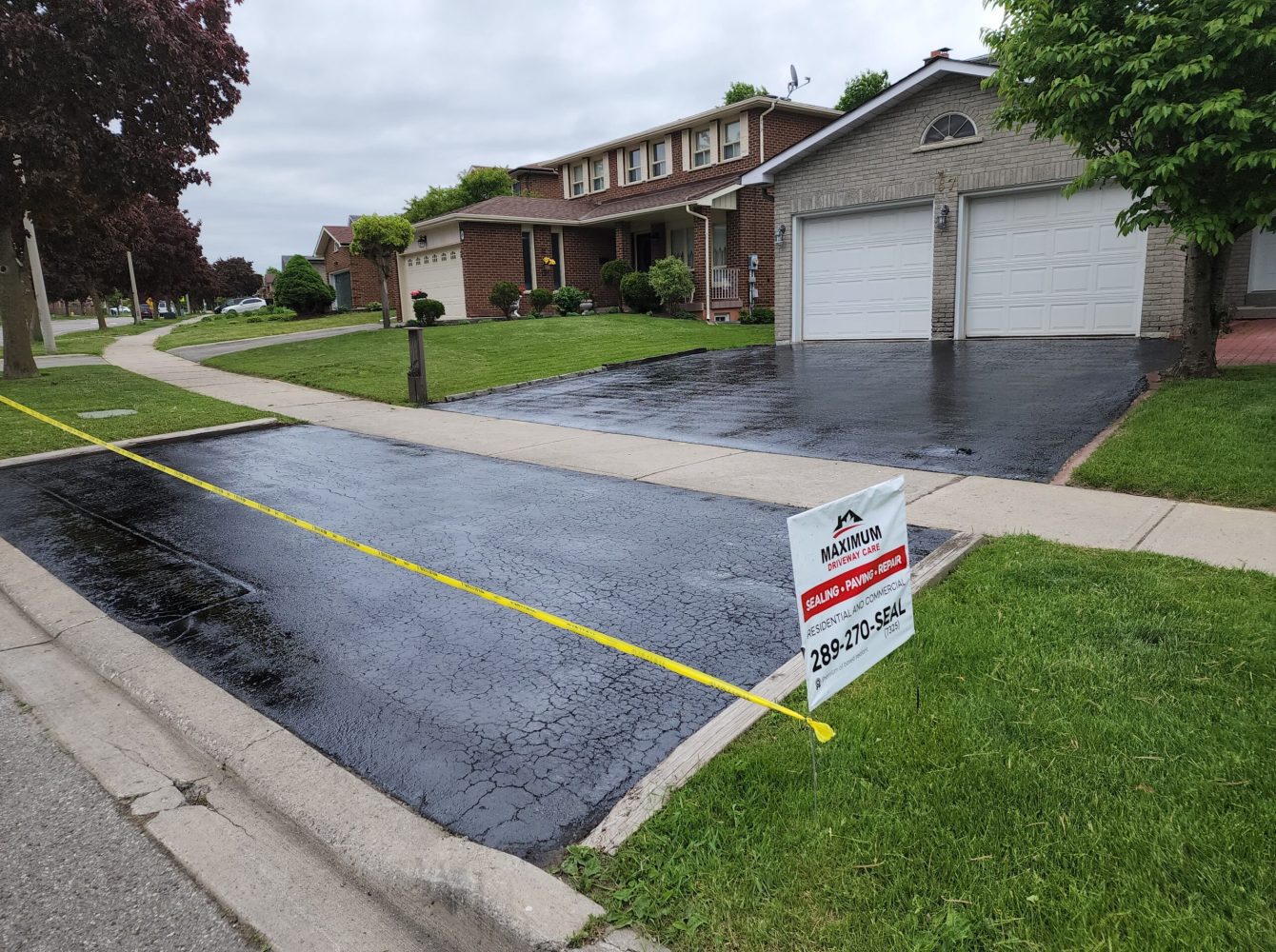Unleash the Prospective: Regrading and Asphalt Sealing for Commercial Spaces
Unleash the Prospective: Regrading and Asphalt Sealing for Commercial Spaces
Blog Article
Warm Mix Asphalt: A Lasting Service for Sidewalk
Warm Mix Asphalt (HMA) has actually become a leading lasting choice for pavement options, using a myriad of ecological advantages and ingenious modern technologies. Its ability to reduce and recycle materials energy usage presents a compelling instance for its adoption in roadway building and construction jobs. Additionally, the long-lasting performance and durability of HMA make it a recommended alternative for facilities advancement. As the demand for environmentally friendly building practices expands, checking out the nuances of HMA's sustainability can provide beneficial understandings into the future of pavement services.
Environmental Benefits of Warm Mix Asphalt

Furthermore, Warm Mix Asphalt helps to minimize metropolitan warmth island impacts. Its dark color soaks up sunshine, lowering the amount of warmth reflected back right into the atmosphere contrasted to lighter-colored pavements. This can reduce ambient temperature levels in metropolitan locations, decreasing the need for air conditioning and eventually lowering energy intake.
Furthermore, Warm Mix Asphalt adds to improved stormwater administration. Its permeable nature permits water to infiltrate the sidewalk and charge groundwater products, decreasing drainage and the threat of flooding. These ecological benefits make Hot Mix Asphalt a sustainable choice for paving roads and highways.
Energy Effectiveness in HMA Manufacturing
Is power performance a vital consider the production of Hot Mix Asphalt (HMA)? Absolutely. Energy plays a significant function in the manufacturing of HMA, impacting both cost and environmental sustainability. One key aspect of energy efficiency in HMA production is making use of warm mix asphalt (WMA) technologies (hot mix asphalt). WMA allows for the mixing and placement of asphalt at reduced temperature levels contrasted to conventional warm mix asphalt, causing reduced energy consumption during manufacturing. This process not only reduces gas usage however also lowers greenhouse gas emissions, making it an extra environmentally pleasant choice.
In addition, developments in plant technologies have led to more energy-efficient HMA manufacturing processes. By enhancing power use in HMA manufacturing, the sector can decrease its carbon impact while keeping premium sidewalk products.
Recyclability of Warm Mix Asphalt
The recyclability of Warm Mix Asphalt (HMA) is a critical facet of its sustainability and long-term environmental effect. HMA is just one of one of the most recycled materials in the United States, with over 100 million lots Look At This of reclaimed asphalt sidewalk (RAP) being reused each year in new sidewalk building and construction. Recycling HMA provides a number of ecological advantages, such as minimizing the demand for virgin products, lowering energy usage throughout manufacturing, and reducing the quantity of waste sent out to landfills.
The process of recycling HMA includes crushing the existing sidewalk, squashing it right into smaller sized pieces, and blending it with brand-new accumulation and asphalt binder to develop a recycled mix. This recycled mix can often do along with or also far better than conventional HMA, while requiring less raw products and generating reduced greenhouse gas exhausts. By including RAP into new pavement projects, road agencies can preserve natural deposits, minimize expenses, and reduce the environmental impact of roadway construction and upkeep tasks. On the whole, the recyclability of HMA plays a significant role in promoting sustainable techniques within the sidewalk market.

Long-Term Performance of HMA
Asphalt pavements show longevity and durability over an extensive period, mirroring the long-term efficiency of Hot Mix Asphalt (HMA) In addition, developments in HMA modern technology, such as the use of polymer-modified binders and cozy mix asphalt, have further enhanced the resilience and longevity of HMA sidewalks. By prioritizing high quality building and maintenance methods, HMA proceeds to confirm itself as a sustainable and cost-efficient solution for long-lasting sidewalk facilities.

HMA: Longevity and Sustainability
Showing both toughness and sustainability, Hot Mix Asphalt (HMA) has actually ended up being a cornerstone in the building and construction of long-lasting sidewalk infrastructures - hot mix asphalt. HMA's published here longevity comes from its ability to hold up against hefty loads, rough weather, and high web traffic quantities, making it a trusted selection for highways, highways, and airport terminal runways. The make-up of HMA, which generally includes accumulations, binder, and filler, plays a vital role in improving its long life and resistance to tear and put on
Additionally, HMA's sustainability hinges on its recyclability and energy-efficient production procedure. The ability to reuse recovered asphalt sidewalk (RAP) in new HMA blends minimizes the need for virgin materials and decreases the environmental impact of sidewalk construction and maintenance. Furthermore, the power efficiency of creating HMA depends on its lower mixing temperature levels contrasted to various other pavement materials, causing reduced energy usage and greenhouse gas exhausts.
Verdict
In verdict, hot mix asphalt (HMA) provides a sustainable remedy for sidewalk with its why not try these out ecologically pleasant qualities. HMA's recyclability, power performance in production, and long-term resilience make it an eco-friendly selection for roadway construction.
HMA is one of the most recycled products in the United States, with over 100 million bunches of recovered asphalt pavement (RAP) being recycled every year in new sidewalk construction.The process of reusing HMA involves crushing the existing pavement, crushing it right into smaller pieces, and mixing it with brand-new aggregate and asphalt binder to produce a recycled mix.Asphalt pavements show longevity and durability over an extended duration, reflecting the lasting efficiency of Hot Mix Asphalt (HMA) In addition, developments in HMA modern technology, such as the use of polymer-modified binders and cozy mix asphalt, have additionally improved the durability and durability of HMA pavements. The capability to recycle recovered asphalt sidewalk (RAP) in new HMA combinations decreases the need for virgin materials and lessens the ecological effect of sidewalk building and upkeep.
Report this page